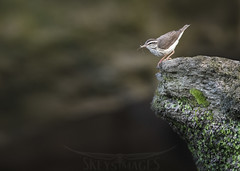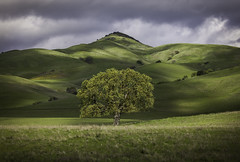The rehearsal process. For a fiction writer who’s never even been in a school play before, it’s incredibly strange.
Before coming to Armagh, I wasn’t particularly up on my dramatic reading. As far as plays went, I was well-versed in Shakespeare and had read a few other dramas: The Glass Menagerie, A Streetcar Named Desire, Oedipus Rex. Beyond that, the nebulous workings of modern drama were a mystery to me. Reading the part of Aoife in an emotionally exhausting, incredible play by the talented Kelsey McGrath is something I’ve never done before, but it’s an experience that I’m really enjoying for all its strangeness.
Though it’s pretentious to type the phrase, I’m going to do it anyway: I consider myself a novelist. Not only does this mean that I consume about four times more coffee than the rest of the population, but I also have an addiction to adjectives. (Nessa will vouch for the truth of this.) I like descriptions. I want to know what the room looks like that the characters are sitting in. I’d like to know what their hair color is, what their favorite color is, what they’re thinking at any given time. Drama doesn’t give you those details. It gives you an entry into the world of the play, and relies on the interpretation of the actors and the context clues of the script to help the audience figure it out.
In that way, a play is more collaborative than any straight prose piece could ever be. There’s very little intermediary action in reading a novel: the author is speaking directly to you, and you pick up what you think is important right out of the text. But in drama, the only way you ever actually see the text is if you pick up an actor’s script and read it yourself. Ordinarily, there’s a middle man between you and the words. An actor negotiates between the playwright and the audience, deciding how the words are to be read and understood. And don’t even get me started on directors, set designers, dramaturges… The whole nine yards.
As a creative writer, I expect to be able to assert control over my text. If I want my character to walk from point A to point B, I need to describe how he’s going to get there and what it looks like. In drama, the act of walking is a collaborative effort. It takes a village to decide what an actor’s walk looks like. To a certain extent, I’m glad that I’m not Kelsey, Jonathan, Chloe, or Chris right now, listening to the directorial team telling them what way would be most effective for their plays to be staged. I don’t know how I’d feel about giving up that much control, personally. I write fiction because I like to tell people what to do, and my characters don’t get up and do whatever they feel like.
Well, they do, kind of. But I still get to type their lines.
Still, there’s something attractive about reading drama. I get to lose myself in a character that’s not me. I get to think about how Aoife would react to Ma, not how Allison would respond to Joan. And let me tell you, those are two extremely different reactions, as you’ll see if and when you get the chance to see the play.
I never thought that I could act, or that I’d enjoy it. But it’s entering the world of a story through the front door instead of behind the scenes with a pen in my hand, and it’s exciting.
Terrifying, and it means I have to work on my yelling voice, but still exciting.







You are such a natural and I appreciate so much how you are putting soul and body into portraying Aoife with authenticity. I know – I KNOW – you can yell and I can’t wait to hear it.